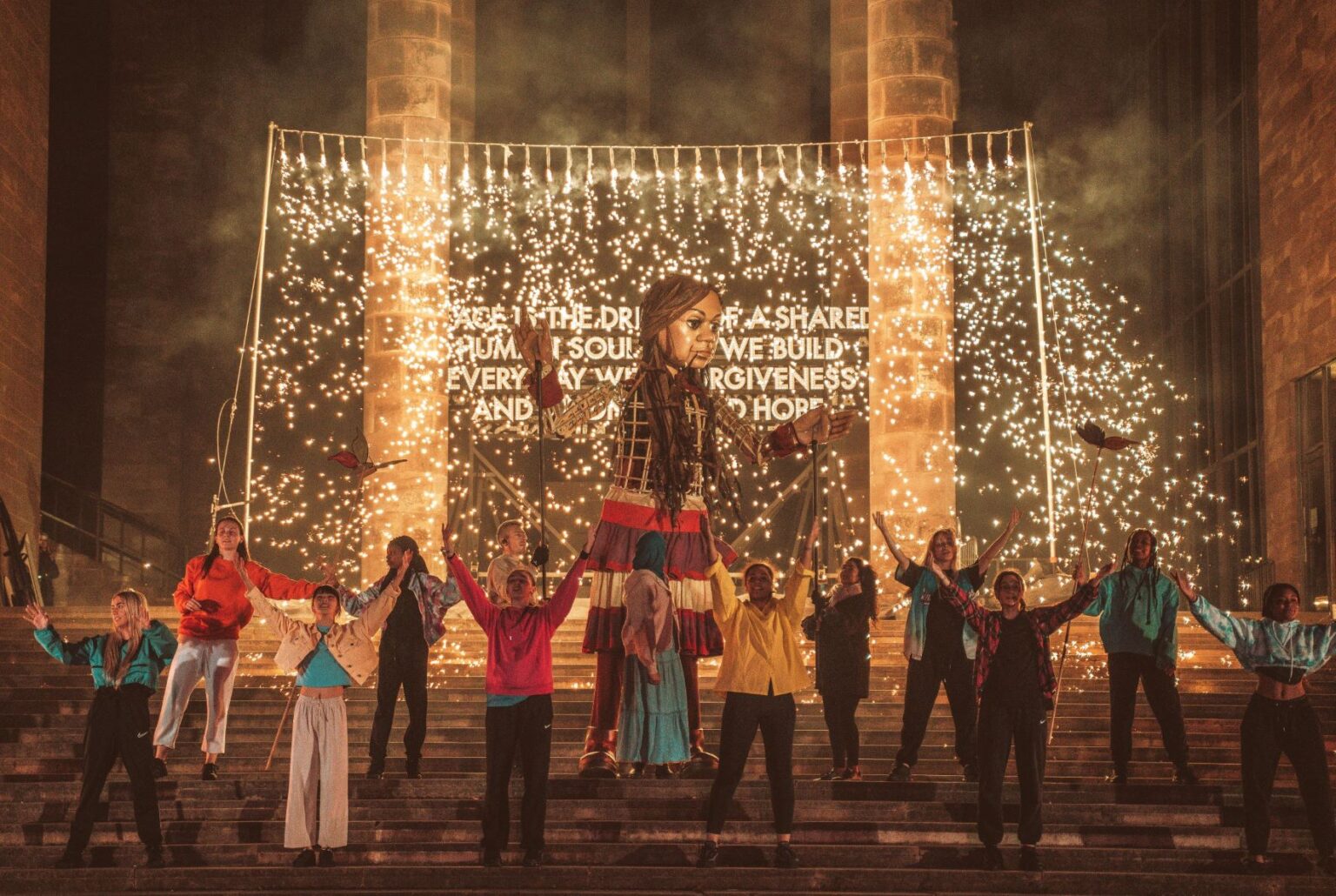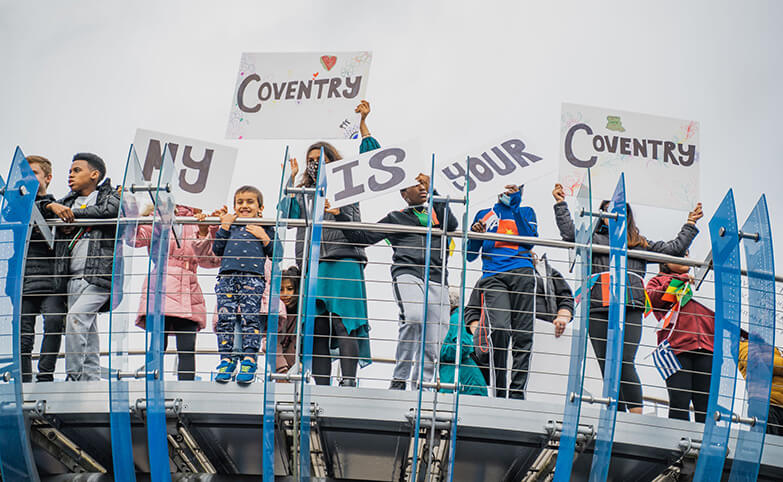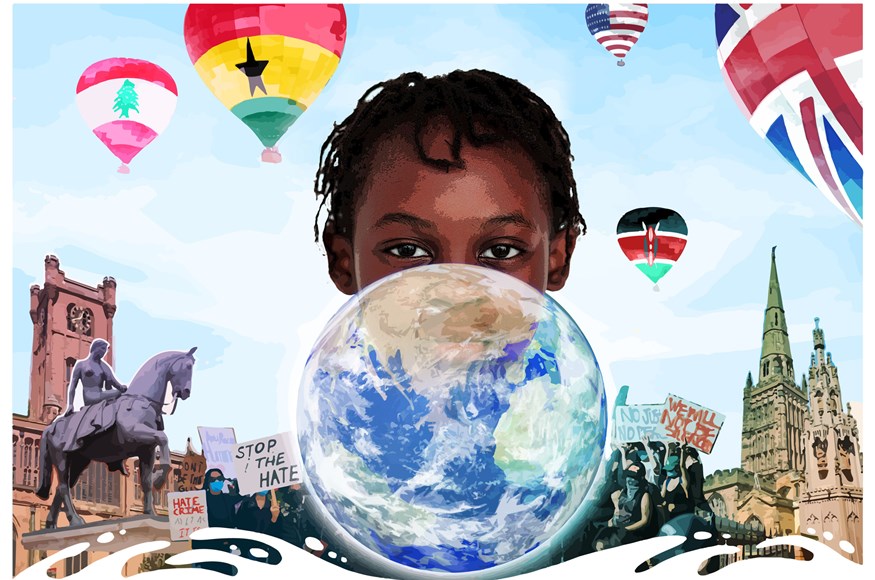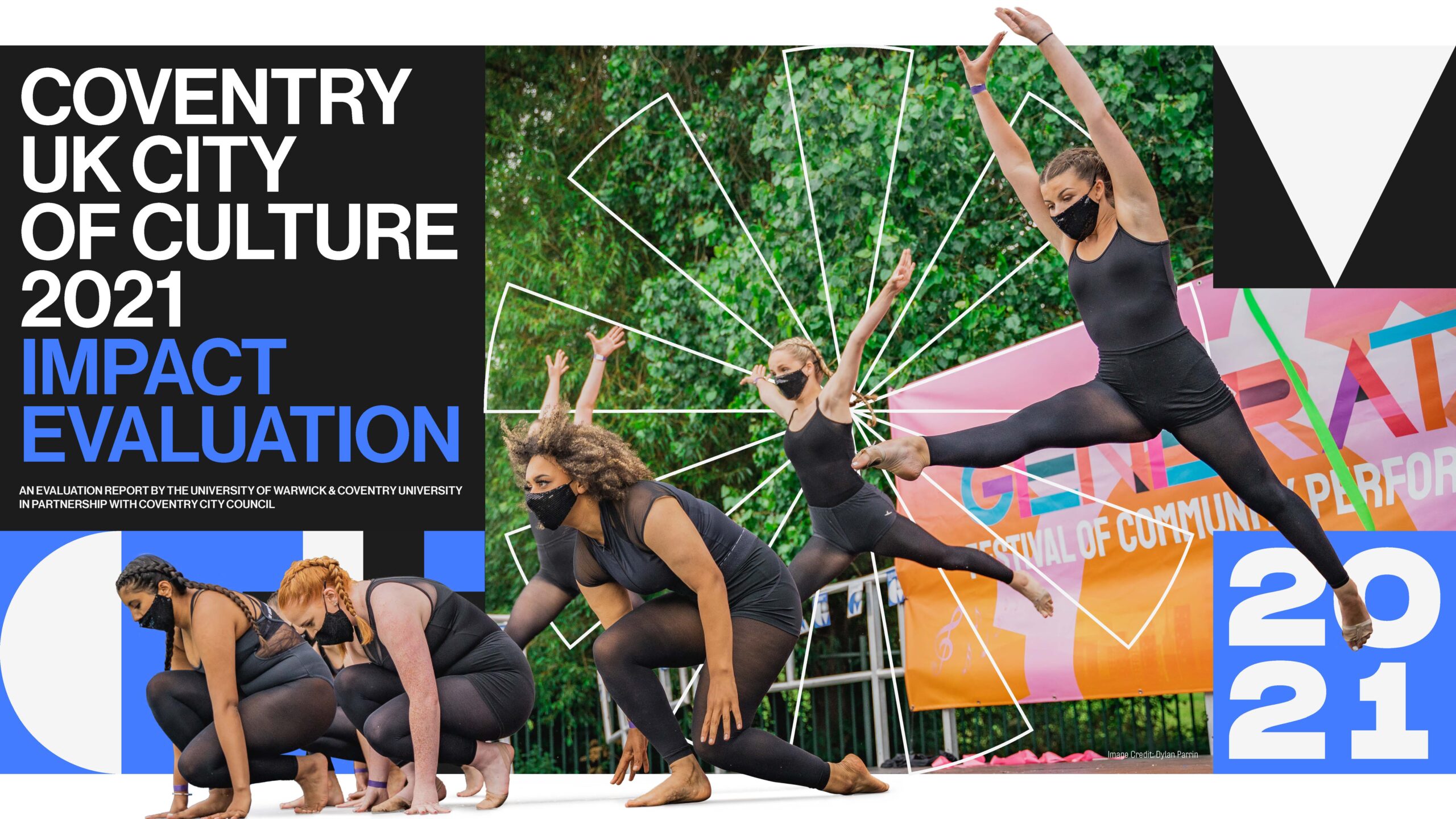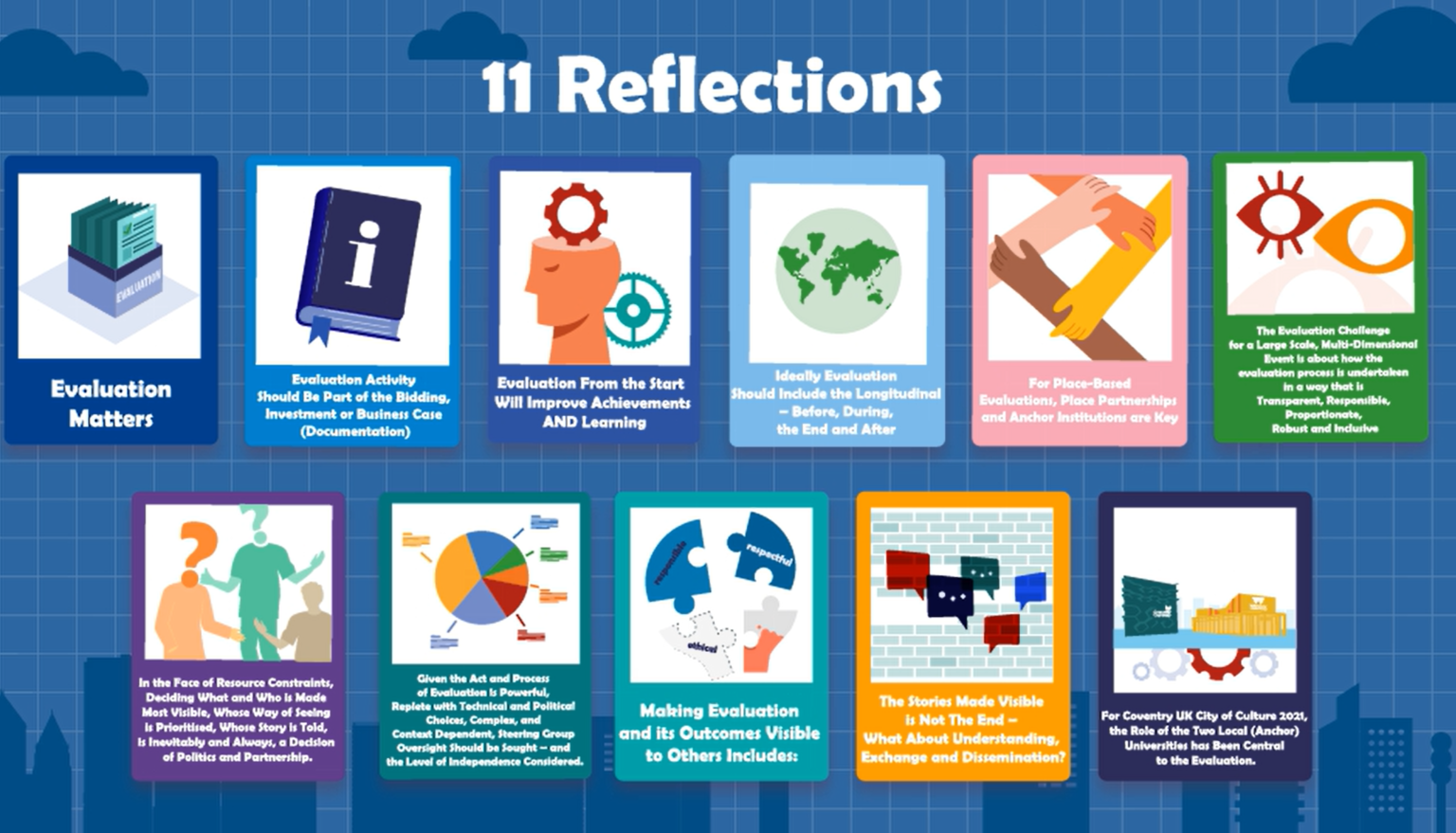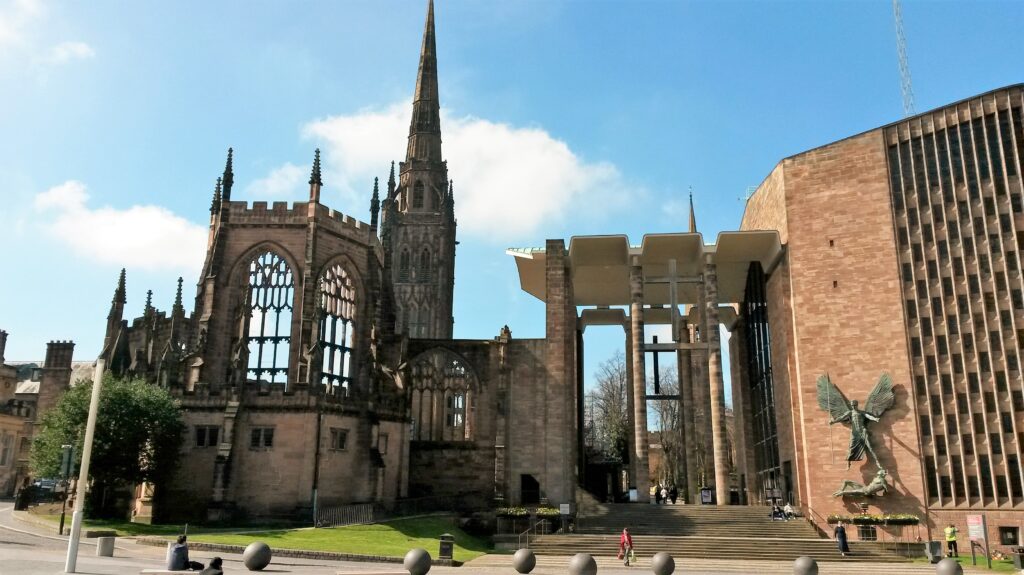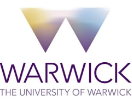The Importance of Place-Based Knowledge Exchange
The Walk (Photograph: Dylan Parrin)
The AHRC Place-Based Knowledge Exchange Programme
The place-based programme was funded by the Arts and Humanities Research Council (AHRC) and managed by the University of Glasgow’s Urban Studies research team. It was designed to improve access to arts and humanities research expertise with a view to informing and supporting the development of plans for local regeneration.
To do so it has sought to:
- develop a programme around new and existing investments
- demonstrate the effectiveness of arts and humanities research for addressing the needs of different locales
- help to make the case for further investment.
The programme included nine AHRC-funded knowledge exchange projects. Each project worked with local and/or regional authorities and community groups, building common mindsets, approaches and language. Using an interdisciplinary method, everyone around the table sought to learn from each other.
What is Place?
Traditionally there have been many definitions of place. Within a policy context this has often been based upon (economic) geography, with boundaries used for resource allocation. These aspects remain important, but from an arts and humanities perspective especially, there are also emotional and cultural components that create a lived and felt experience to place.
The Levelling Up the United Kingdom White Paper has generated discussions, which consider place and its context more broadly. These discussions were recognised by the AHRC in the development of its place programme.
Professor Madgin and Dr Jaideep Gupte (Director of Strategy, Research and Innovation, AHRC) discss the value of place in the economic and social development of communities:
University of Glasgow – College of Social Sciences – Spotlight Podcast. (Starts at 23:25.)
City Change Through Culture:
Securing the Place Legacy of Coventry City of Culture 2021
Led by Coventry University, together with co-investigator, the University of Warwick, and partner, Coventry City Council, this knowledge exchange project built upon the ongoing independent monitoring and evaluation work that ran in parallel with Coventry’s year as UK City of Culture 2021 (UK CoC 2021) and acted as a mechanism for sharing reports and findings.
In particular, the project:
- developed the Evaluating Coventry UK City of Culture 2021 website as a place for interested stakeholders to find reports and other outputs from the independent UK CoC 2021 monitoring and evaluation process
- supported authors with the writing of UK CoC 2021 focus study reports and delivery of webinars covering volunteering, wellbeing and civic pride; integrating the environment (into the City of Culture); civic cultural and business partnerships and faith and culture
- made cultural data available to participants over a weekend and asked them to develop evidenced ideas and concepts that had the potential to ‘make life better in Coventry during the Coventry Cultural Challenge
- gave interested stakeholders a new way to learn about Coventry through the use of data insights, and photographs and videos of Coventry through the years (from Coventry Digital) while Walking Through Coventry Data
- catalogued and stored images, videos and assets generated during UK CoC 2021 within Coventry Digital, adding searchable metadata
- presented lightning talks for Coventry City Council staff and the academic community to broaden their awareness of the type of UK CoC 2021 data collected, that included ticketing, cultural participation and sentiment, as well as related attitudes to Covid-19
- generated and animated a series of reflections from the monitoring and evaluation of UK CoC 2021.
These activities shared Coventry related knowledge that can be used to inform future planning and decision making locally, regionally and nationally.
Other Place-Based Knowledge Exchange Projects
Art is Everywhere (University of Edinburgh)
This project ensured sustained access to the arts for all ages in North Lanarkshire and tackled:
- education
- health
- socio-economic inequalities.
With a strong focus on community engagement and collaboration across sectors, the project brought together key stakeholders and community members.
City of Caves: Regenerating the Heart of Nottingham Through ‘Hidden Heritage’ (University of Nottingham)
City of caves – a network of over 870 caves that date back to at least medieval times – helped to put Nottingham’s heritage at the centre of a major redevelopment of the important Broadmarsh site.
It ensured that residents and visitors are able to benefit from it for years to come.
Creative Peninsula (University of Exeter)
This project examined the contribution that arts and culture can make to local economic development and social change to inform policy development in Devon and Cornwall.
It brought together universities, local government, and arts organisations to share learning and build a network of connected organisations.
Cross-Pollination: Growing Cross-Sector Design Collaboration in Placemaking (Open University)
Cross-pollination was a creative approach to bringing people together to share resources and knowledge to design initiatives.
The project trained representatives from three partners, based in Wales, Scotland and England, to plan and deliver local impacts.
Design Innovation and Cultural Resonances (Resonance): Place-Based Collaboration (Glasgow School of Art)
Resonance drew together creative economy practitioners and creative and cultural organisations through a series of civic exchanges centred upon the capturing, amplifying and sharing local knowledge and cultural assets to inform decision-making.
It developed the capability, capacity, and collaborations needed to ensure the cultural knowledge of local stakeholders and communities could inform government decision making.
Feeling Towns: The Role of Place and Identity in Governance and Local Policy (University of Southampton)
Feeling towns helped local and national government, as well as national bodies such as Historic England, to create, put in place, and evaluate strategies for civic pride.
Often seen as an important part of local regeneration, the idea of pride and place has become an important aspect included in many initiatives and funds to support development and regeneration.
People, Heritage and Place: Using Heritage to Enhance Community and Wellbeing in Saltaire, Bradford (University of Bradford)
This project supported management and development of the Saltaire World Heritage Site by:
- encouraging public engagement with planning for the site
- stimulating tourism in the area
- enhancing education about the site.
This was achieved through close collaboration with local schools, businesses, and residents to develop a digital 3D representation of Saltaire.
Roots and Futures: Scaling Up and Sustaining Co-Produced, Place-Based Heritage with Underserved Communities in Heritage Policy and Decision-Making (University of Sheffield)
Roots and futures enabled, empowered, and embedded the voices of diverse communities more explicitly into Sheffield’s current heritage strategy in ways which:
- enhanced belonging, wellbeing and inclusion
- addressed the needs of strategy-makers.
The project built on existing partnerships with Pakistani, Yemeni, and Somali communities to realise the needs of these communities via new partnerships with regional decision makers.
Common Themes, Challenges and Approaches
Throughout the year, the project teams met several times, online, to provide an overview of their work and to identify common themes, challenges and approaches.
Across the programme, a lot of time and resource was needed to build new relationships, as well as to develop existing links further, especially when trying to give voices to seldom-heard communities.
There have often been (historic) tensions between stakeholders, such as universities, local authorities, community groups and policy makers.
A key stage was to gain an understanding of each other, as each organisation tends to use different methodologies and have different outcome and output requirements, even where there are shared goals. An example being that researchers often consider storytelling as a strong way to evidence impact, whereas a local authority is likely to need statistics.
It was often necessary to adapt working practices to break down barriers and build bridges. In some ways, the Covid-19 pandemic had already changed approaches and methods of communication, so this period of re-evaluation was timely.
Use of Stories in Place-Based Knowledge Exchange
Professor Bambo Soyinka described storytelling as a way to bring together different people and viewpoints, and to help understand conflict and co-create solutions.
Storytelling can enable confidence and show a potential trajectory, equipping stakeholders with multiple perspectives.
A story is not text that is written at the end, but a way of thinking about relationships for social causes and needs. The best storytelling begins with exploring different perspectives during interventions with communities.
The question debated was whether to start with a single perspective and then add others or start with different views and try to weave them all together.
Summary
Recognition and understanding of place is important for communities, organisations and interested stakeholders both for planning and day-to-day interactions. The AHRC’s investment in nine projects showed how place can be viewed from a number of arts and humanities related perspectives.
In Coventry, the place-based knowledge exchange project was used to raise awareness of the range of research and evaluation that came from the city’s year as UK City of Culture. This project reached out to stakeholders through a range of different approaches to highlight data that are available, key findings and lessons that have the potential to support future decision making.
Acknowledgements
The article was written by Tim Hammerton, Coventry University.
Descriptions of the place-based knowledge exchange programme and the projects have been taken from the related AHRC and University of Glasgow webpages.


